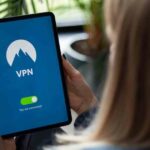To compensate for specific gaps in provision, you have to be vigilant online. Using a VPN is just a starting point for any user. Being aware of the limitations is only half the battle. For personal online freedom, additional privacy measures are available for optimum efficiency.
A VPN can serve you in so many modern and intricate ways. With adequate research and guidance from experienced current users, there is no reason it should not work for you. Millions around the world have benefited from the service by using a VPN sensibly and efficiently daily.
A VPN could revolutionize the way you operate online, so let’s look at VPN in more depth and decipher whether you should always use one;

The Basics Of A VPN
Whatever device you use, laptop, tablet, phone, etc. Each one will interact with third parties on the web. When you use the internet, it is not as simple as immediately linking to your destination request without barriers. A continual process takes place in the background that sees the exchange of data between your device and others.
So how can you protect against this?
VPN can help with a secure pathway for your data to travel through without being intercepted on the internet. Using a VPN means your encrypted information during traffic goes through a connection to a secure external server.
Once the data reaches the VPN server, it safely transports to your chosen destination online. With your IP address hidden and internet freedom intact, you have the ultimate peace of mind.
VPN Set-Up
Setting-up is not complicated, and the functionality of the VPN service overall is user-friendly. It is simple on mobile but equally uncomplicated on other devices such as laptops and tablets.
The majority of the time, your ISP will do most of the work on your behalf. The importance of choice is vital, and it is crucial to find a VPN that suits your exact needs.
Most software designed by VPN providers is compatible with all the top brands, so you will not have any issues. A downloadable VPN client is available on iPhone, Android, sometimes Linux but definitely on Mac and Windows. Once the software is ready, you can select a protocol and get connected to a server within minutes.
The Advantages Of A VPN And Why You Should Always Use One
The list of reasons why you should use a VPN is endless. Many people are taking advantage of the significant benefits associated with VPN. Some of the more prominent reasons are listed below;
- Secure internet access on public Wi-Fi networks
- Remote access and bypassing internet censorship and geo-blocks
- Access to your company’s network
- Downloading and uploading anonymously
- Prevent companies from building a file on you
- Safety on the web
- Bypassing censorship and geographical restrictions
- Anonymity on the internet
- Protection against hackers and governments
The Covid-19 pandemic made multiple global businesses reevaluate how they operate. Smaller, local companies have had to change structures and procedures to fit in with new requirements. People working from home may be practical, but it isn’t always secure. Using a VPN can solve this issue for the employer and employee.
Usually, an employer would run its systems on a secure private network. A company can track all activity online and restrict anything not suitable for the place of work. When people work at home, they cannot monitor if they are on a VPN, which benefits all employees.
It also provides the employer with an assurance that company data is encrypted and not viewed without authorization.
Vulnerability online doesn’t just make the everyday user paranoid about who is watching them. Big companies and even some countries limit and restrict the use of sites and apps.
For example, without a British IP address, you cannot stream the full selection on BBC iPlayer. A VPN can swerve this for you and provide unlimited access to all sorts of previously untapped entities.
A VPN works in the same way. It provides aid to people in countries such as Egypt, China, and Turkey. They are forbidden to use particular internet services by their respective governments and access them via a secure VPN.
Changing their geo-location communications like Skype and Whatsapp and banned social media formats like Twitter and Facebook are retrievable.
Leaving yourself open to cybercrime is a daily possibility if you are not aware and careful at all times. Governments, hackers, and general third parties are always seeking more and more information.
A secure VPN can prevent this as it encrypts all your internet traffic. Log-ins, passwords, bank details, and other important details are all kept hidden from prying eyes.
The use of Torrents is illegal in specific countries, so downloading them is illegal if you reside in these places. Downloaders risk the wrath of the law once tracked and found and need a way around this.
They seek solace in a VPN to give them online independence and to protect their identity. These measures prove how people can use a VPN, not encouraging anyone to break the law.
To ensure nobody views or keeps track of what you upload or download online, a VPN is a great option. As long as their intentions are genuine and authentic, it is understandable for people to use a VPN.
Law-abiding citizens have a right to online privacy and anonymity when browsing the web. The same can be said for gaming, streaming, and downloading files also.
Due to the encrypted traffic and the rerouted IP address, you can download anonymously with a VPN. VPN is an attractive opportunity to a user who wishes to remain private and not intercepted during their business.
Marketing companies will have less threshold on your data to be able to send you tailored ads. VPN significantly reduces the level of profile these companies can build on you and store or sell for future reference.
Using a VPN to become less visible to advertising networks makes a lot of sense. If you think about how much personal information is taken from social media, restricting it is appealing. Any profiling will be limited. You won’t receive unwanted ads or have private data sold.
Being able to do this securely through a VPN entices many people to switch to this option.
Is A VPN Safe To Use?

As with most things in life, there is a risk, and personal trust will factor into any decision. Many ponder the idea of a VPN not being safe or trustworthy, but there is very little evidence to prove it.
By advocating the use of a VPN, you are giving the provider access to everything you do. It is not recorded but can be monitored live by them if they wish.
It is imperative to have confidence in your provider before making any decisions. It would be sensible to seek the opinions of current users and read as many reviews as you can.
To avoid the risk of a provider abusing your trust and selling your details, avoid free VPNs. The key is to do plenty of research and listen to trusted recommendations, not random ones.
VPN And Your Internet Connection: A Special Relationship
Rumors and ‘fake news’ will naturally circulate, especially in the tech industry. It only takes one opinion to go viral before the whole world thinks it must be true.
We are inclined to trust others’ views if they have taken the time to complain or write a review. These days, to share a bad experience is easy and equally as simple to exaggerate it for likes.
With that in mind, you should believe everything you hear regarding VPN affecting internet speeds. It is likely to be something else or a coincidence because the software installed has no bearing on efficiency. If anything, testing has shown that in some cases, internet speeds improve with VPN. Take the negative reviews with a pinch of salt.
Not every VPN server is the same. There are particular VPN servers that inevitably slow proceedings down ever so slightly due to the nature of their role. On the rare occasion this occurs, it is solely due to the redirection connection through the remote server. During a busy time then you experience slight lagging and the odd glitch.
The redirection through a VPN server naturally takes longer than an open server, but it is barely noticeable in most cases. It will not be enough to sway their opinion either way nor make them reject the service. Many VPNs enhance the enjoyment of streaming, browsing, and gaming using enhanced security and no lag.
VPN is great for those with a limited amount of internet speed. A VPN enables you to remove restrictions, maximize the potential speed and make your link even faster than before. ISP cannot prohibit it, and you can enjoy the benefits.
Where Does VPN Stand In Terms Of Legality?
The legality will largely depend on where you are in the world, but in the majority of the countries, VPN use is legal. Endorsement by the major companies and businesses across all continents speaks for its reputation and authenticity.
The difference is, illegal activities are illegal no matter what software or device you use. So using VPN, in general, is no problem but using it to perform unlawful acts is against the law under any circumstances.
The lack of clarity is because of the purpose of use and lack of morals in cybercrime. Hackers will naturally hide behind a VPN to remain anonymous and not be traced by the authorities.
It may be unsolicited, but it is not against the law to use the software. The illegal act is the hacking itself, and unfortunately, the VPN server gets the bad press by association.
VPN provides a platform for internet freedom like no other. Cyber independence of this type has the full support of the European Union, which further validates the product.
The majority of the Western world is fully accepting of VPN for gaming, streaming, and general browsing. Reiterating the point made above, using VPN to download illegal files or pirate copies of music/video is not tolerated.
Criminals can use VPN to hide their online identity, and the software makes them hard to trace, creating a stigma. The outcome leads to distrust and an unwanted reputation in some circles.
Some countries consider VPN use illegal, and the misuse by some hackers no doubt contributes to that. Human error can be very damaging to a good product or service’s reputation.
The Seven Key Factors To Consider To Always Use A VPN
Hopefully, the information above has left you in a good position to judge for yourself if you should always use a VPN with strong arguments for it and some guidance around the perceived negatives.
Each individual will have their own personal reasons for the decision they make but ultimately if they are educated on the subject then they will realize that 7 fundamental aspects come into play. These are;
- Is Your Bandwidth Restricted By Your ISP?
- If You Are Using Public WiFi?
- If You Are Transferring Money?
- If You Are Using Your VPN to Bypass Geoblocking?
- If You Are Worried About Your Online Privacy?
- If Your Internet Is Slow?
- If You Are Attempting to Save Money?
Whether you are new to VPN use or are just looking to expand your knowledge, be sure of your choice. It is vital to know the ins and outs of a virtual private network to improve your VPN options.
Our user-friendly guide has hopefully taken you through. Anonymous activity is sought after but can be complicated if you don’t know what you are doing.
A secure VPN tunnel has multiple benefits for the user. This article has discussed the reasons to choose a VPN and the various aspects surrounding its use. Connecting to the internet is now a massive part of our day so ensure you do it safely. VPN can alter your thought process on your web use and may impact your strategy too.
- IPSec vs. OpenVPN: Which Is Better? - December 10, 2022
- How to Turn Off VPN on Mac: A Step-by-Step Guide - December 10, 2022
- What Is a VPN Concentrator and What Does It Do? - December 10, 2022





